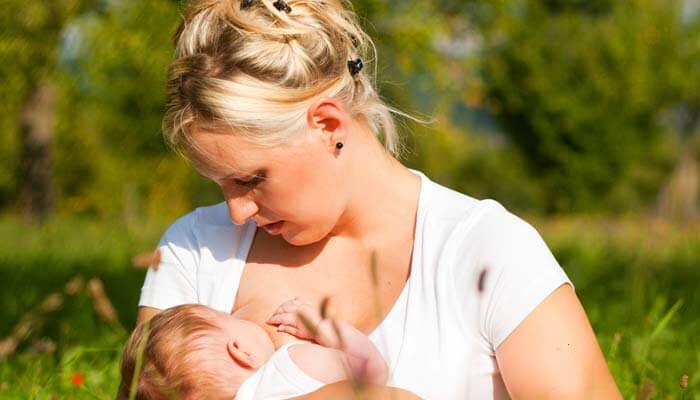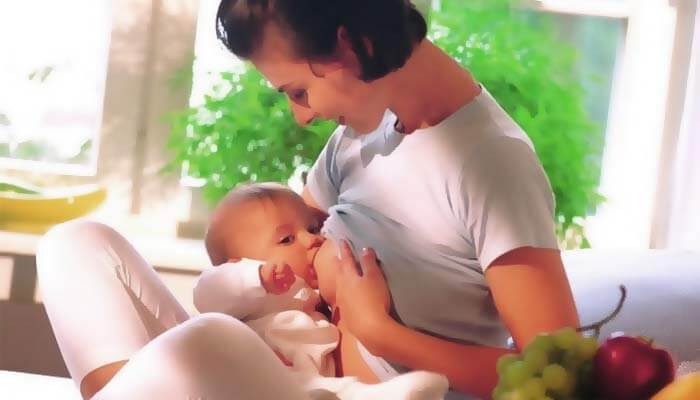Breastfeeding Can Help Prevent Breast Cancer Related Deaths

Breast cancer is the most frequent gynecological tumor that afflicts women in western countries. This disease has serious consequences on a women’s health, and the age at which it appears is getting lower and lower.
For this reason, scientists have carefully analyzed the causes and possible forms of prevention. Today, breast cancer research is a priority both for medical professionals and for scientists.
We all know that breastfeeding is highly beneficial for babies and mothers alike. But did you know that breastfeeding can even prevent breast cancer related deaths?
Breast milk contains a great number of components that immunize babies against illness.
Breastfeeding protects women against breast cancer, diabetes, metabolic syndrome and other diseases as well.
Specialists recommend exclusive breastfeeding for the first 6 months of a baby’s life. But even once mothers introduce a complementary diet, breastfeeding should still continue until at least 2 years of age.
“Lukewarm, milk-flavored love… I nourish you with the harvest of my soul”
-Claudia Farías-
Breast cancer prevention and other benefits of breastfeeding
As stated above, breastfeeding has amazing benefits for women’s health. It helps prevent breast cancer, ovarian cancer, and type 2 diabetes.
In addition to that, it reduces the risk of anemia. And – something we all love to hear – breastfeeding helps women lose weight.
The World Health Association recommends that women breastfeed their babies until at least two years of age. 22 thousand breast cancer related deaths could be avoided if more women would heed to this advice.
Various studies took place in 30 countries, which lead to the conclusion that breastfeeding significantly prevents breast cancer.
This is because of the strong relationship that exists between the delay in the reestablishment of ovarian function and the lowering of estrogen levels.

Benefits of breastfeeding for babies
A mother’s breast milk contains indispensable nutrients and proteins that her baby needs after being born. Breast milk is easy for a tiny baby’s sensitive stomach to digest.
Colostrum, for example, is the first nourishment that a newborn baby receives when he first starts breastfeeding.
This substance, often referred to as “liquid gold”, strengthens the little one’s immune system. For that reason, many consider colostrum to be a child’s first vaccine.
“If there were a vaccine with the same benefits as breast milk, parents would pay any price for it”
–Carlos González–
Some advice regarding breastfeeding
Posture
The mother should sit up and use pillows to stay comfortable. Nursing pillows help women position their baby at breast level.
Calm environments are ideal so that the baby can relax without becoming distracted or frightened. Some mothers also prefer to have privacy.
Too little milk?
It’s important for nursing mothers to drink plenty of water and eat healthy. Don’t skip meals, and get enough rest.
Another great way to boost your milk supply is to let your baby nurse on demand. Your baby’s suckling will stimulate your milk production.
Too much milk?
If you’re producing more than enough milk for your baby, your body will soon adjust. In the meantime, you can extract excess milk and save it at room temperature during the day.
You can also store it in the refrigerator for up to 24 hours. And you can even store it in the freezer for several months – a great resource for working moms.
Remember that breast-pumps stimulate your breasts, so this method won’t lower your production. If you prefer your body adjust to your baby’s nursing needs, then we recommend you extract your milk manually to avoid excess stimulation.

Change sides
At each feeding, you should start with one breast and then switch to the other. At the next feeding, start with the opposite breast, and so on. Aim for 15 minutes on each breast for newborns.
Nipple pain
To assure that you’re breastfeeding correctly, your nipple shouldn’t be deformed when your baby releases. Nor should it hurt.
Inverted nipples
Despite common misconceptions, breastfeeding is possible even if you have inverted nipples. There are different instruments to aid you in the process, including nipple shields.
If your baby refuses to nurse
If your baby is refusing to breastfeed, you’ll need to reteach him or her to latch on.
Don’t be afraid to ask for the help of a breastfeeding specialist if necessary. This is a learning experience for both you and your baby, so be patient and persevere.
Now you know what a great gift a mother’s breast milk is. Not only is it free, but it helps both mother and baby avoid serious illnesses.
Babies grow up fast and this stage won’t last forever, so enjoy each opportunity you have to nurse!
All cited sources were thoroughly reviewed by our team to ensure their quality, reliability, currency, and validity. The bibliography of this article was considered reliable and of academic or scientific accuracy.
- Aguilar Cordero, M., González Jiménez, E., Álvarez Ferre, J., Padilla López, C. A., Mur Villar, N., López, G., & Valenza Peña, M. (2010). Lactancia materna: un método eficaz en la prevención del cáncer de mama. Nutrición Hospitalaria, 25(6), 954-958. http://scielo.isciii.es/scielo.php?pid=S0212-16112010000600010&script=sci_arttext&tlng=pt
- Donegan W. (1977). Breast cancer and pregnancy. Obstet Gynecol. 50: 244-252. Â
- Tongzhang Z, Li D, Yi L, Bing Z, Yan W, Yongxiang Ch, Yawei Z et al. (2000). Lactation reduces breast cancer risk in Shandong Province, China. Am J Epidemiol. 152: 1129-1135.
This text is provided for informational purposes only and does not replace consultation with a professional. If in doubt, consult your specialist.
